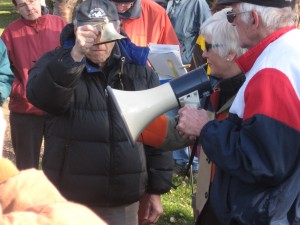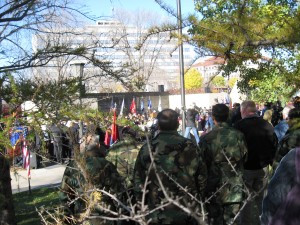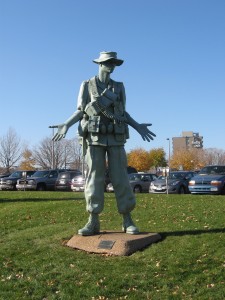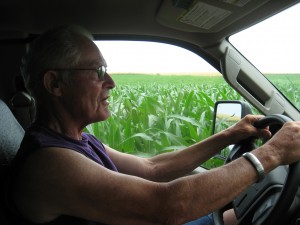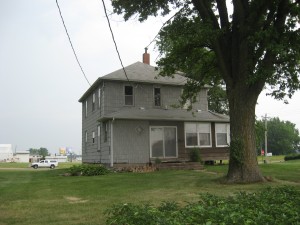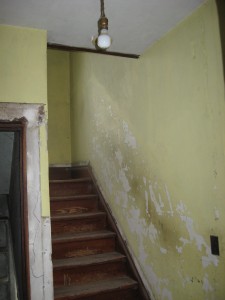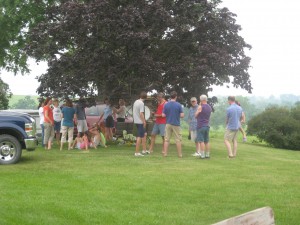#614 – Dick Bernard: The Summer of 1920
Several photos are at the end of this post. Click on any to enlarge them.

A conversation, a letter, and a visit to three ladies this summer brought to the surface some long ago memories, worth sharing.
Best I know, 1920 in North Dakota was a pretty ordinary year for farmers on the prairie. The horrid World War I had ended two years earlier; the Roaring Twenties were set to begin. It was, in relative terms, probably fairly good times on the prairie.
August 18, 1920, the 19th Amendment to the U.S. Constitution was enacted. It was the Women’s Suffrage amendment. Finally, women had earned the right to vote!
But the summer of 1920 was a bit more dramatic for three farm families, as I had an opportunity to revisit this summer with three surviving first cousins, Marion Placke, Ruby Fitzgerald and Edith Busch.
My grandparents Busch had farmed between Berlin and Grand Rapids ND since 1905; their sister and brother, August Berning and his wife Christine, came in1906 and lived the next farm over, a short mile walk across the pasture (if the bull was nowhere to be seen). Grandma and August’s oldest sister, Kate Placke, lived in the home country, at the base of Sinsinawa Mound, in rural Wisconsin, a few miles from Dubuque Iowa.
Farm families were large then.
By 1920, Kate had been married 25 years and had a dozen children. Grandma Rosa by then had six of her nine children; and Christina nine of her thirteen.
That summer, Rosa and Christina were both pregnant. Christina was carrying twins, and the pregnancy may have been difficult. Rosa had Edith on July 20.
Harvest was looming and while we normally hear stories about the men “trashing” (as Grandma wrote “threshing”), harvest time was where the women’s work was truly never done.
Of course, everyone’s harvest came about the same time, and it was not a good time to share labor between farms.
What to do?
Likely through letter, but possibly telephone as well, It was decided that Kate would come west to help her sisters. Kate probably brought with her the three youngest kids, Lucina, 10, Florence, 7 and Marion, 4. Another sister, Lena Parker, also lived nearby and probably helped as well.
At some point, Christina Berning came home to her parents home, the Wilhelm Busch farm in rural Cuba City, and gave birth to twin daughters on September 25, 1920. Ruby lived, Ruth died in infancy.
Sometime that summer, probably after the harvest, and before Kate Placke and family and the Bernings left for Wisconsin the families gathered at the new Veterans Memorial Park in Grand Rapids.
Grandpa Busch most likely brought out the old ANSCO box camera, which had accompanied them to the prairies 15 years earlier, and took the below group picture. (The camera was last used about 1963 – we know because it had an unused roll of film with an expiration date of 1964 when we opened the box a few weeks ago.)
Life went on.
The Bernings resettled in Dubuque IA, living there till 1933 when the Depression caused them to return to the ND farm during the awful Depression years. The Dubuque plant in which August made radio cabinets closed, and the reasoning was that at the farm they at least could eat. Even that became questionable during the dry years. Uncle Vincent remembers 1934 as the worst of them all.
Busch’s and Berning’s survived the Depression, but barely. The Wisconsin kin seemed to fare quite a bit better.
Seven years after 1920 Verena Busch, then 15, died as a result of a ruptured appendix, the only one of the Busch’s children to not survive childhood; Ruth was the second Berning child to die in infancy; the Placke’s had seen one child die at age three.
Today, there remain only three of the children alive in 1920: Marion, 96; Edith, 90; and Ruby, soon to be 90.
They’ve all lived good long lives.
Thanks for the memories.

Group photo at Grand Rapids Veterans Memorial Park in 1920. Standing at center were the park caretakers, Art and Lena Parker. Lena was the sister of Kate, Rosa and August.





